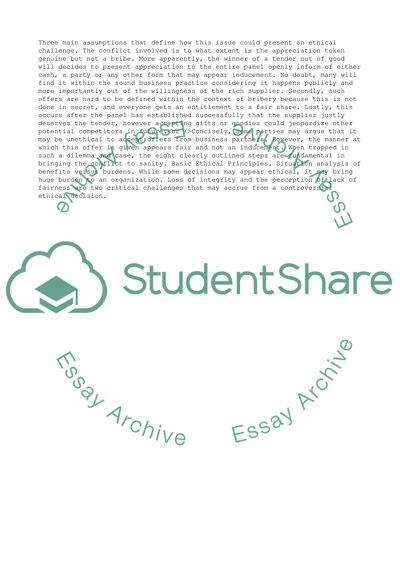Cite this document
(“Steps to Ethical Decision Essay Example | Topics and Well Written Essays - 2500 words”, n.d.)
Retrieved from https://studentshare.org/management/1700449-steps-to-ethical-decision
Retrieved from https://studentshare.org/management/1700449-steps-to-ethical-decision
(Steps to Ethical Decision Essay Example | Topics and Well Written Essays - 2500 Words)
https://studentshare.org/management/1700449-steps-to-ethical-decision.
https://studentshare.org/management/1700449-steps-to-ethical-decision.
“Steps to Ethical Decision Essay Example | Topics and Well Written Essays - 2500 Words”, n.d. https://studentshare.org/management/1700449-steps-to-ethical-decision.


